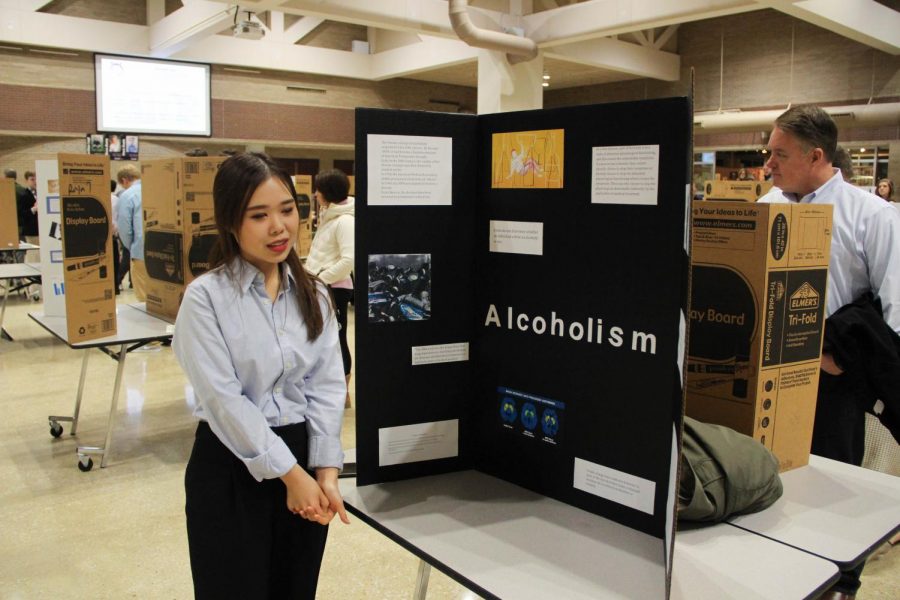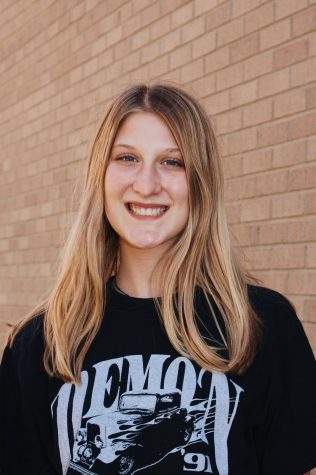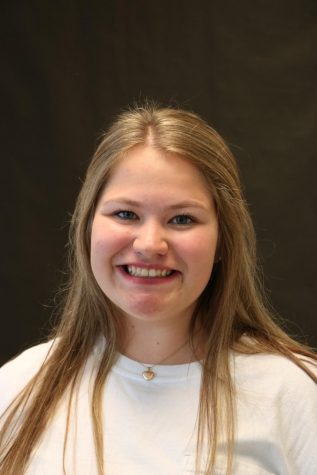ELA 12 shifted to research-based curriculum for first semester
Looking to modernize the curriculum, ELA 12 teachers shifted to a research-based curriculum during first semester
December 22, 2018
The ELA 12 program made changes to their curriculum during first semester, according to ELA 12 teacher Dan Eigenberg. English classes focused on a research-based curriculum during first semester, with the seniors working toward a large, individual research project at the end of the semester. The English department’s curriculum will return to the traditional novel-based curriculum of previous years, Eigenberg said, for the second semester.
After attending an education course focused on media literacy over the summer, ELA 12 teacher Dan Eigenberg said he used the knowledge attained there to help the students who have struggled with research projects in the past. Despite the shift in the curriculum, Eigenberg said he is confident the changes did not negatively impact the learning of students.
“Even when I teach the same books and the same things, I never just take what I did one year, and carbon copy it into the next year,” Eigenberg said. “I’m always trying to change and tweak how could this thing be better, or especially with a subject like English, how can this be more relevant to the students.”
Likewise, ELA 12 student Sam Moffett said the new curriculum is geared toward college readiness.
“[The new curriculum] gets us more prepared for college,” Moffett said. “It gives us research skills that are needed without teachers telling you exactly where to look or what to look up.”
As a first year teacher at Northwest, ELA 12 teacher Sarah Lee said she previously taught seniors in California. From her previous teaching experience, Lee said she has a background with this teaching style. However, Lee said they did not focus as heavily on analyzation of articles in California.
Lee said her class usually consists of group discussions and projects more than individual work, because she said she finds the group aspect of this teaching style is beneficial to the students. Lee said she sees benefits in group discussions because it’s a great way for students to learn how to formulate opinions and keep an open perspective.
“If you’re not really in class, you don’t get the full aspect of the lesson if you’re not here to hear other people share, because within a classroom there’s conservative and liberal as well as shy people and outspoken people,” Lee said.
Lee said she wants students to become more informed citizens before they graduate in 2019. She said she hopes students will be able to decipher media, not only for research, but to also make smarter decisions based off of information they receive from news.
“I want them to know what’s out in the media,” Lee said. “[As well as] to make wise decisions on what they are reading and not just take things for face value.”
After the first semester concluded, Moffett said she would advise future classes to choose their topics wisely.
“I would tell future students to definitely pick a topic they are interested about because it’s hard to write a paper that long over nothing,” Moffett said.











